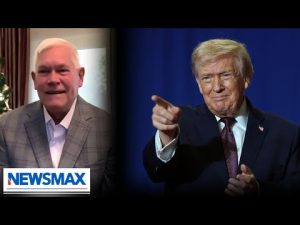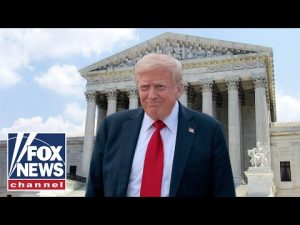In an unexpected twist in international relations, President-elect Donald Trump has been making waves even before taking office. Recently, he held a significant phone call with Mexico’s newly elected President, Claudia Sheinbaum. The chat stirred up considerable excitement since both leaders discussed crucial issues related to illegal migration and border security. Trump took to his platform, Truth Social, to announce that Sheinbaum agreed to proactive measures to halt illegal migration, which he claims effectively seals the US-Mexico border. Meanwhile, Sheinbaum provided her perspective that leaned toward cooperation and bridge-building than outright closures.
James Rosen, a chief correspondent at the White House, reported on the unfolding dynamics. Interestingly, this conversation was only a slice of Trump’s growing influence on the global stage. Reports suggest that the former commander-in-chief is also engaging with Egyptian officials about ceasefire negotiations in Lebanon, showcasing his politically strategic maneuvering during the transition phase. Biden’s team has noted that they’ve been keeping Trump informed about these sensitive discussions, bringing into play the unique leverage that the outgoing president possesses.
On the frontier of Middle Eastern relations, analysts are raising eyebrows at how Trump is embracing an ‘America First’ philosophy as he prepares for his return to power. Many are opting for a cautious evaluation of how this might reshape U.S. foreign policy. A seasoned former Army captain, Jesse Petrilla, shed light on Trump’s apparent doctrine which opposes the idea of nation-building in the Middle East. Instead, the thrust seems to be narrowing the focus onto U.S. interests and preserving the nation from entanglement in foreign conflicts.
Yet, the phone conversation between Trump and Sheinbaum provides a lingering question about future U.S.-Mexico relations. While Trump is stern about tariffs, suggesting a hefty 25% fee on Mexican imports until border security improves, Sheinbaum is presenting a counter-narrative. In her view, Mexico is committed to addressing the entire migration question with respect for human rights and aims to provide assistance to migrants before they even reach the border. This serves as a reminder that although the tone from Trump may be bold and assertive, cooperation is still on the table.
While Trump remains busy rallying his team at Mar-a-Lago, his phone calls with world leaders reflect a strategy underlining his desire to reclaim America’s position in global affairs. These interactions reveal that despite the chaos that often surrounds transitions, Trump and his team are gearing up for a robust re-engagement with international politics. Indeed, the coming months could redefine not just border policies and international negotiations but also the very fabric of U.S. diplomatic efforts. As this tale unfolds, one can only imagine what else lies ahead on the road to Trump’s inauguration and beyond.







